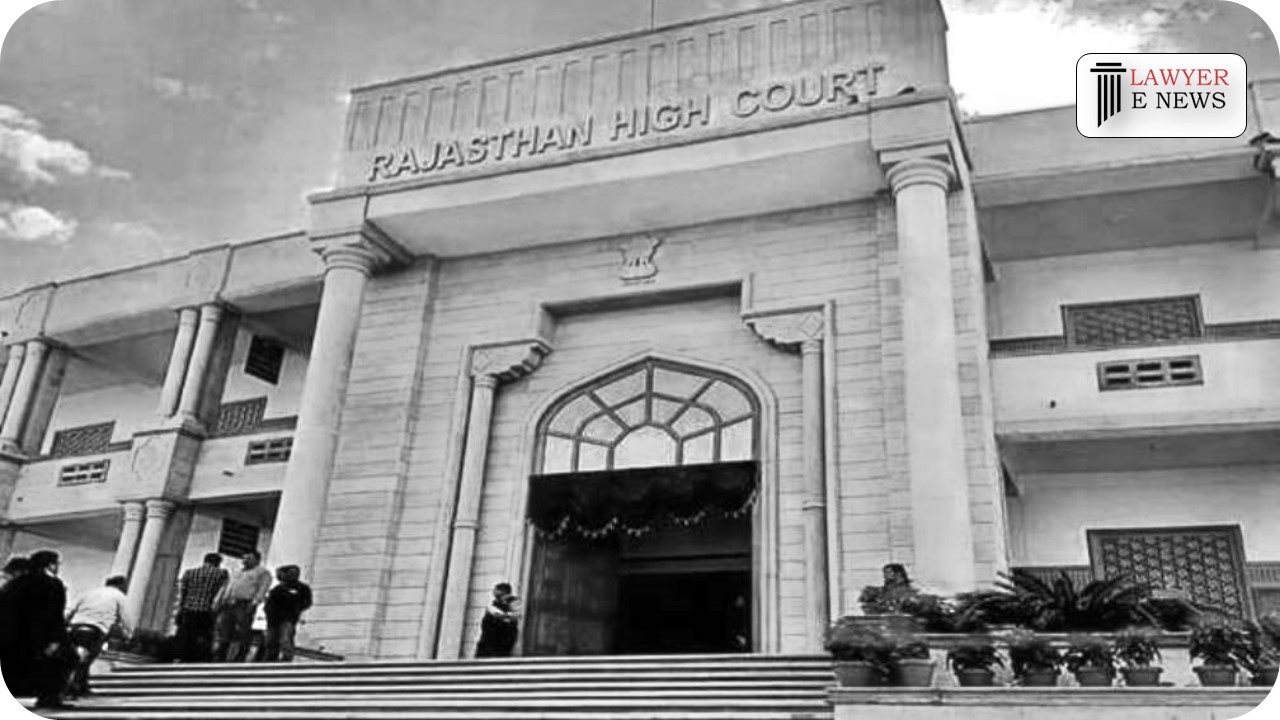-
by Admin
15 February 2026 5:35 AM



In a significant development, the Rajasthan High Court has granted bail to Ranjeet Singh and Preetpal Singh, who were arrested in connection with an FIR under various sections of the Narcotic Drugs and Psychotropic Substances (NDPS) Act. The bench, presided over by Justice Kuldeep Mathur, ruled in favor of the petitioners due to their prolonged incarceration and the undue delay in the trial proceedings.
The Rajasthan High Court has granted bail to Ranjeet Singh and Preetpal Singh, both accused under the NDPS Act, after a prolonged pre-trial detention of over three years. The decision underscores the judiciary's commitment to upholding fundamental rights under Article 21, particularly the right to a speedy trial.
The court noted that the petitioners have been in custody since November 27, 2020, and that the trial has seen significant delays. "The petitioners have been in custody for more than three years and six months, and only three out of thirteen prosecution witnesses have been examined so far," Justice Kuldeep Mathur observed. The court emphasized that such delays are not attributable to the petitioners, thereby violating their right to a speedy trial.
Justice Mathur referenced several Supreme Court judgments to support the decision, particularly focusing on the balance between statutory restrictions and constitutional rights. In *Union of India vs. K.A. Najeeb* (2021), the Supreme Court highlighted that while statutory restrictions on bail are significant, they must be harmonized with the constitutional mandate for a speedy trial. The court also cited *Rabi Prakash vs. The State of Odisha* (2023), where prolonged incarceration was deemed sufficient to override statutory bail restrictions under the NDPS Act.
Justice Mathur stated, "An accused person cannot be kept in custody for an indefinite period till the trial is concluded. The presumption of innocence, a well-established principle of criminal jurisprudence, operates in favor of the petitioner."
The High Court’s order granting bail to Ranjeet Singh and Preetpal Singh highlights the judiciary's role in ensuring that delays in the judicial process do not infringe upon the fundamental rights of the accused. This decision reiterates the importance of a balanced approach between statutory provisions and constitutional rights, particularly in cases involving prolonged pre-trial detention.
The ruling is expected to impact future cases under the NDPS Act, where delays in trial proceedings are commonplace. It serves as a reminder to lower courts to expedite trials and protect the fundamental rights of the accused.
Date of Decision: May 27, 2024
Ranjeet Singh vs. State of Rajasthan
